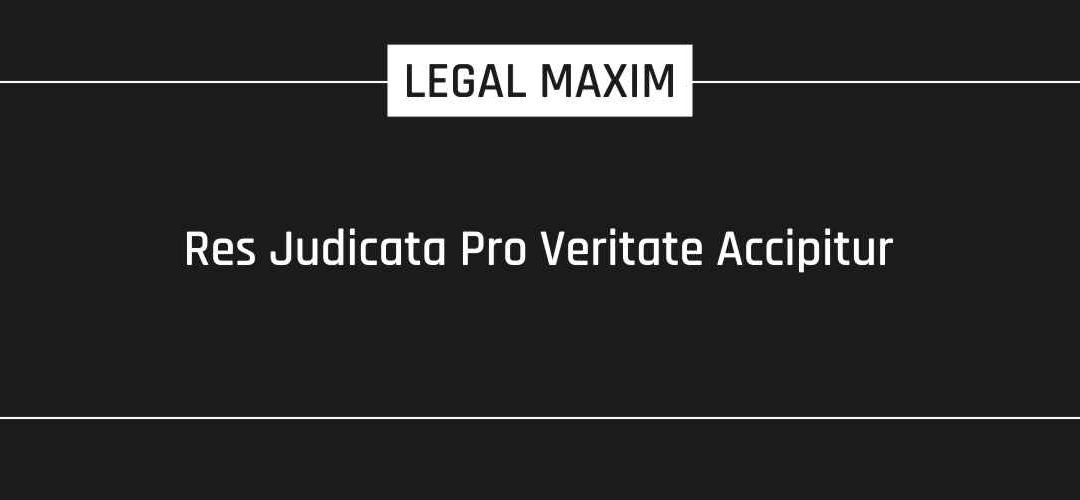Literal Meaning
A point judicially decided is taken to be correct
Origin
Latin
Explanation
According to this maxim, a suit/dispute in which the matter directly or substantially in the issue has been directly/ substantially in issue in a former suit between the same parties, or between parties under whom they or any of them claim has been decided by a competent court shall not be tried again in the same matter in any other courts. In simple words, a decision once rendered by a competent court on a matter in issue between the parties after a full inquiry should not be permitted to be agitated over again by the same court or some other court between the same parties in the same matter. The rule of estoppel by res judicata is a rule of evidence, which prevents any party to a suit which has been adjudicated upon by the competent court from disputing or questioning the decision on merit in subsequent litigation.
It is based on the concept of public policy and private justice which apply to all the judicial proceedings. According to this, public policy involves that the general interest of the litigation must come to an end or that the litigation must have its finality. Similarly, private justice requires that an individual should be protected from vexatious multiplication of suits and prosecutions at the instance of an opponent whose superior power and resources may enable him to abuse the process of court.
A decision by a competent court, which is final, should be binding and the same questions are sought to be controverted in the subsequent litigation for which this maxim applies.
Illustration
A has filed a suit against B in a trial court which issued a decree in favor of A. However, A filed the same suit with the same matter against B, in a different court which has competent authority. In such case the maxim Res Judicata Pro Veritate Accipitur applies since, the same matter in the same suit between the same parties was already decided by a competent court earlier.
Case Laws
In Bhagat Ram vs the State of Rajasthan, the Supreme Court held that the maxim ‘res judicata pro veritate accipitur’ is no less applicable, to criminal than to civil proceedings. Here, the appellant having been acquitted at the first trial on the charge of having ammunition in his possession, the prosecution was bound to accept the correctness of that verdict and was precluded from taking any steps to challenge it at the second trial.
Further, in Kunjan Nair Sivaraman Nair vs Narayanan Nair And Ors, the Supreme Court referring to the maxim ‘res judicata pro veritate accipitur’ held that it operates as a bar to the trial of the suit or issue if the matter in the suit was directly and substantially in issue (and finally decided) in the previous suit between the same parties litigating under the same title in the court, competent to try the subsequent suit in which such issue has been raised.
